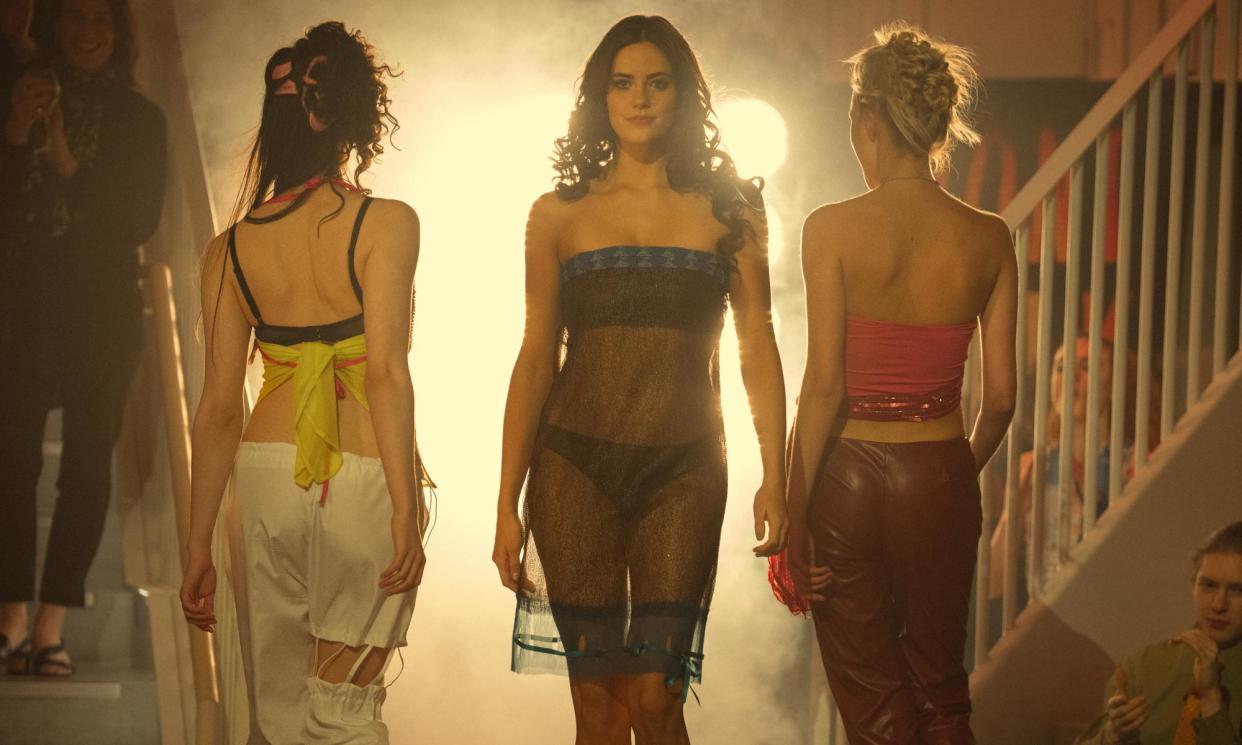The Crown finale review – William’s university years are a weird campus romcom

What is the monarchy for? What is The Crown for? The two questions slalom side by side as Netflix’s super-lush biographical drama concludes the story of Queen Elizabeth II. But the overriding theme is the same one that has underpinned Peter Morgan’s scripts all along: a life of public service, we are told, is a burden that demands great personal sacrifice, with the main loss being one’s happiness. How convinced you are by that will determine how effective you find The Crown’s denouement.
The series does largely recover from its wobble in the first half of the season, when Princess Diana took over the whole show and led to some wild creative decisions, chief among them “ghost Diana”. The riskiest moment in the new episodes is a dream sequence in which the Queen imagines her reign being ended by the new king, Tony Blair: at the coronation, choristers sing an eerie a cappella version of Things Can Only Get Better.
That scene begins the Tony Blair episode – the closing instalments are often dedicated to a single issue each; the rise and fall of Blair is the one that has been dramatised most successfully. Blair’s personal ratings soar just as the Queen’s dip, leading to a wild moment when she seeks his counsel. His zeal for modernisation almost makes the royal family take drastic action, such as publishing full accounts, toning down the expensive pomp, and firing the specialist staff employed to fold napkins and corral swans. In the end, the Queen sees sense – and sees through Blair. He is convincingly played by Bertie Carvel, who nails the nasal rat-a-tat of the “lidder of the Lebbah putty” and commands his mouth into new shapes to match Blair’s grin – as a chancer with “statesman syndrome”, not a real statesman with whom she can connect. The old traditions may be fraying, but the wise Queen knows she is nothing without them. It’s a neat fable.
If Blair comes off poorly here, spare a thought for Carole Middleton (Eve Best), whom we first meet out shopping with her daughter Kate. They spy Princess Diana – she’s back! It’s OK, it’s only a flashback – on a public engagement with Prince William. From that moment, Carole has William pegged as a future son-in-law.
A few years later, when William (Ed McVey) arrives at the University of St Andrews, Kate (Meg Bellamy) is on the same course because Carole has made sure of it. William: the University Years causes The Crown to swerve into campus romcom, with the young prince’s frustration at not being able to party without being hassled by paparazzi assuaged by the attentions of a young woman who seems too sensible to be intoxicated by his status. We know her to be anything but: when Kate initially dates someone else and takes him home to meet her parents, Carole is disgusted that he isn’t William. When Kate impresses Wills by wearing a see-through dress on the catwalk at a student fashion show, she does it expressly for his benefit. The Middletons are bluntly portrayed as throne fans who spot their chance and grab it.
William almost becomes this season’s main protagonist, struggling as he does to accept a future of unrelenting public scrutiny. The potentially more interesting character of Harry is only a cartoon of a naughty younger sibling, bringing the family into disrepute by smoking weed and dressing up for a party as a Nazi. Luther Ford is excellent in the role – like McVey and Bellamy, he entirely belies his lack of acting experience – but how Harry comes to be so resentful isn’t explored.
Instead, The Crown circles back to Elizabeth (Imelda Staunton). What seems like yet another episode dedicated to the thwarted hedonism of Princess Margaret (Lesley Manville) is really about her sister: a flashback to VE Day in 1945, when the princesses dance the jitterbug with American GIs, is the last time Elizabeth is allowed to be Elizabeth. In her last years, buffeted by the death of Margaret, the Queen Mother and indeed herself – she has to help plan her own funeral – Elizabeth starts to wonder what it was all for.
There is some daring dialogue in the final episode, as even the Queen acknowledges that the institution of the monarchy is an awkward, moribund absurdity. Yet in terms of emotional drama, all The Crown has ever really had is the idea that living in palaces is terribly difficult. It’s always been a shaky premise, but it made some sense when applied to people who were never rewarded with the crown. Hearing about the agony of not having abdicated from the actual Queen really is rich. “What about the life I put aside?” asks Elizabeth. “The woman I put aside?”
Her younger self – a cameo from Claire Foy – answers simply on our behalf: “What sort of question is that?”
• The Crown is on Netflix now.

 Yahoo News
Yahoo News 
